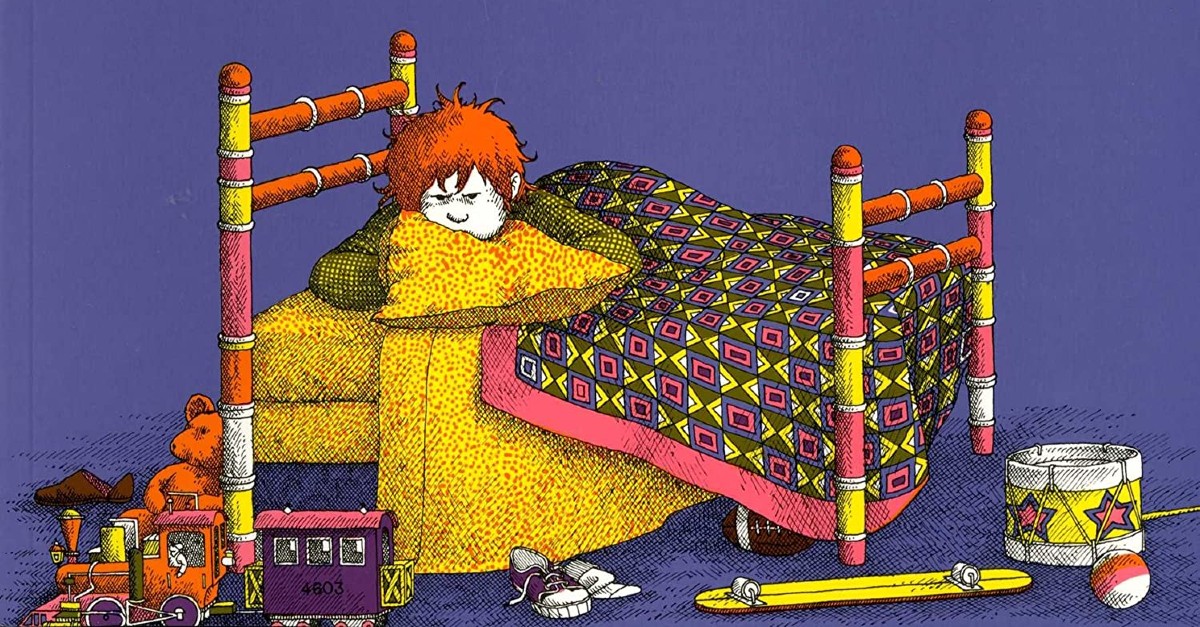Have you ever read Alexander and the Terrible, Horrible, No Good, Very Bad Day?
You probably have (after all, the book is a classic), but for the sake of this blog post let’s pretend you haven’t. Written by Judith Viorst and illustrated by Ray Cruz, the story follows a young boy named Alexander as he proceeds to have a terrible, horrible, no good, very bad day.
This poor kid is put through the ringer. In the morning he gets gum stuck in his hair and accidentally soaks his sweater with water. At school he’s criticized by his teachers, overshadowed by his peers, and discovers his mother forgot to include a dessert with his lunch (the absolute worst)! At the dentist, he predictably has a cavity, and at home he’s bullied by his siblings. What makes this all the more painful is that there’s no silver lining to these events.
Nothing happens toward the end to rally Alexander out of his funk. He simply goes off to bed with the understanding that some days will be bad days. It’s a fact many of us have become acutely aware of recently.
Hitting the Wall
There’s no disguising that this has been a hard year. COVID-19 still looms large over every facet of our society. Many people have lost their jobs, or worse, lost a loved one. Our students haven’t escaped unscathed either. Many were unable to graduate with the pomp and circumstance they deserved. Others saw promising opportunities in sports or academics evaporate into thin air.
Our first instinct as educators has always been to reassure and encourage our students. We want to show them that even during a pandemic, there are still ways to exercise their curiosity, creativity, and critical thinking. This is important, and I’m in no way suggesting that we stop doing this. However, I think there’s also something to be said about acknowledging grief and processing difficult emotions. The truth is, sometimes there is no silver lining. Sometimes our students are simply going to have a bad day.
Being Present
I’m sure many teachers have already experienced this. There have been tears and tantrums from students, and you’re likely feeling completely burned out. I won’t pretend that I have any answers to these situations, but I would like to share a few reflections I’ve made these past few weeks.
First, be patient. Be patient both with your students and with yourself. We’re all living through one of the most life-changing events imaginable. Students are going to be frustrated and upset. You’re not going to be fully prepared or master every new tool. That’s okay. Stop trying to hold your classroom to the normal standard when school has been anything but normal.
Second, remember to let them process. An important part of social-emotional development is learning to accept difficult feelings. There’s a scene in the Pixar movie Inside Out where Joy tries to fix a situation by being fun, when what the moment really needed was for Sadness to do her work. The same holds true here. We educators should certainly work to encourage our students, but also give them space to process the things they’ve lost.
Finally, take time to heal. I’ve personally been amazed at everything teachers have accomplished in 2020. You’ve literally moved mountains with one hand tied behind your back, and you should be proud of your accomplishments. But nobody can work this hard without burning out, and right now many teachers are not doing enough to take care of themselves. So, whether it means treating yourself to an early present or taking a day to catch up on sleep, make sure you give yourself time to heal.
Tomorrow is Another Day
If Alexander taught us anything it’s that bad days are inevitable, but they don’t last forever. Tomorrow is always another day, filled with great possibility and opportunities to learn. In the same way, COVID-19 wont last forever. One day we’ll all be back in the classroom again. Until then, remember to be patient and do what you can. You never know when a wonderful, excellent, pretty great, very good day is just around the corner!
We hope you are all staying healthy and safe during this difficult time. For more free educational resources, or ideas on how to promote healthy Social-Emotional Learning, simply follow this link!
*Image courtesy of Alexander and the Terrible, Horrible, No Good, Very Bad Day by Judith Viorst and Ray Cruz. get your copy today!

